pulse check
montréal and the choice I have to make
1
I’m thinking of leaving Montréal. I run my mind over the thought like water over a rough rock. I walk down Rue University and look at the big intersection with Sherbrooke and I tell myself—I might only have five or six more months here. It’s a pang, and I deflate.
I try to tell myself that it’s always in the last bit of living somewhere that I’ve made my connections to places, that I’m always breaking my heart this way. But Montréal feels different. This place is the best place I’ve ever lived, maybe the best place I will ever get to live. I live in a sweet one-bedroom apartment that doesn’t cost that much more than the last room I rented in a run-down house in Cleveland, and I have so much here—the big rug, the bookshelf, the art on the walls, but also friends, neighbors, a set of habits too fickle to call routine. I’ve been hosting my neighbors at home, making chili so everyone can talk about rent; I’ve been going to readings and talking about hosting a salon. We have rights as tenants and the unions are strike-happy, for better and for worse. Even if grad school is brutal, and McGill especially so, there’s a social fabric in this place, weird and bilingual and unlike anywhere else I’ve been. I love Montréal to pieces, and I think that at least sometimes, it loves me back.
I love this city in a way I’m not sure I’ve loved others. Depending on how you count, I’ve lived in somewhere between five and ten places over my life, visited probably three or four times as many, and it’s been a habit of mine to write about my favorites like lovers. Five years ago, when my friend Rachel challenged me to write a love poem (“i’m feeling blue about love let’s all be sad”), I wrote a poem called “the only love poems I write are to places.” It was missing the letter u and was addressed to Brussels/Bruxelles/Brussel.1 It began:
o lowland
the warmth of a fogged winter light already echoes
in the pedestrian place / plein and simple gastronomy
the fresh ville switching from soft speak to strain
across the street, even an olive pavilion
o city
not special, not even remarked, only holding
me in the space between its international whispers
atoms and steel towers high with vlaams – french – walloon
bookstores softening comics, the sadness of english songs
I was so enchanted by the city’s multilingualism, the way that everyone spoke with some kind of accent in some language and it didn’t make them foreign. If I remember correctly, the English song in question was actually Leonard Cohen, the poet prince of Montréal, “Famous Blue Raincoat” to be precise, playing in a Brussels bookstore with books in at least four languages. I’ve written like this, in the lover’s mode, to Paris, Tel Aviv, New York, Berlin—maybe more—but never Montréal. Maybe I’ve grown out of it, or maybe it’s just that it feels like a real place, not a character; somewhere that’s possible to live in and love.
Montréal is a seasonal city, and winter this year has been good and heavy. It’s wintertime and we’re all in hibernation or hard at work indoors. I love this, too, about the city: it’s made for winter, made so that you have little reason to go outside if it’s too forbidding. But then the city unfolds like a flower in the summer, warm and open. My biggest regret of 2024 is not spending more time here in June and July. I’ll be correcting that this year, or trying to.
Yes, I’m thinking of leaving Montréal. I’ve gotten a handful of PhD offers, and I feel lucky that each of them feels difficult to refuse—though perhaps less so under the current administration. I think in many ways I’ve had to tamp my own excitement, which creeps in anyway, and then leaves just as suddenly when I read the news. I don’t really know how to make this decision. The thing I’ve been telling people since I moved here is that I love Montréal, but I don’t love McGill, and that’s true. This city has given me so much—joy especially. But I’m still young-ish, still at a moment of formation. When I know I could learn so much elsewhere, it’s hard to decide whether to stay or to go.
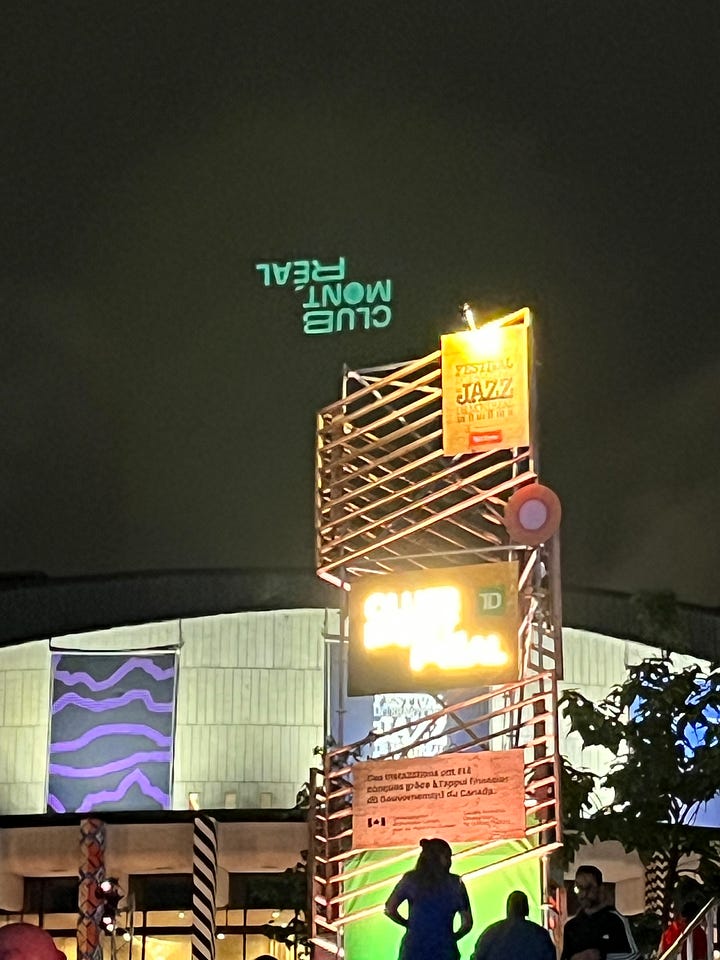
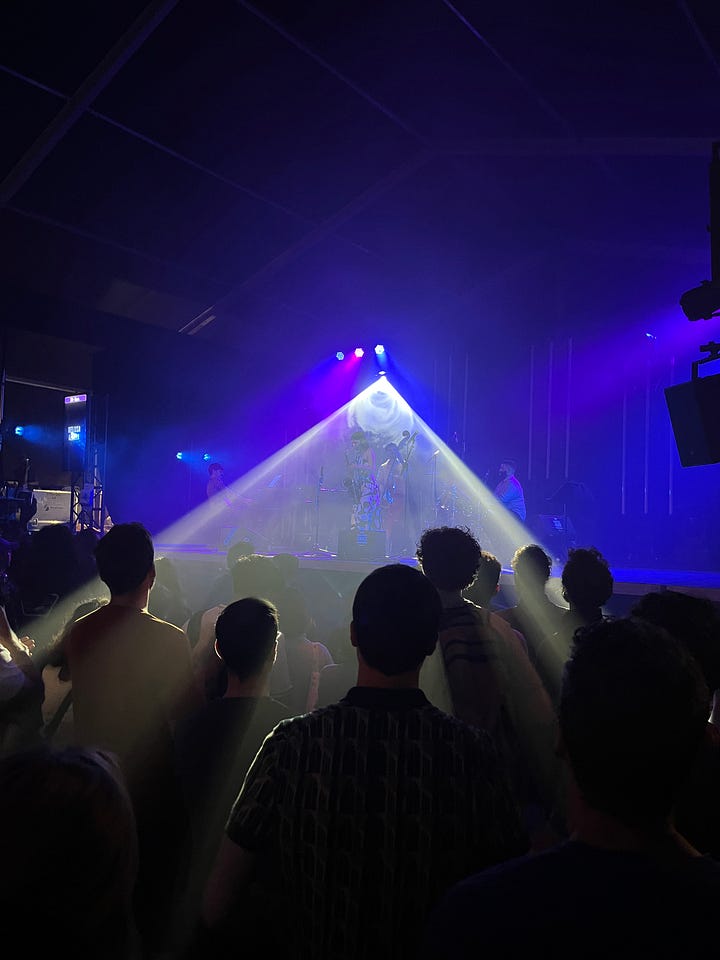
Seven months ago, down on my program and my research and the way no one really seems to talk to each other across labs, I told a new friend, I love Montreal but I need to seek my fate elsewhere. Well of course, she said, I understand, I agree. Montréal is a big and small city at once, and at least for anglophones, the resources only go so far, you have to leave eventually. And then we left her apartment and walked a block to the free jazz festival that takes over downtown every year, and I thought—how, exactly, could I leave all this?
2
I’m thinking of staying in Montréal. I’ve been thinking of it since I first got here, because the place is so livable, and beautiful, and good—because I speak French and love literature, and because there is art and music and life that keeps flourishing here. In this city, I love the bonjour/hi that greets me in every establishment, against the language police, and that every conversation is a linguistic choose-your-own-adventure; I love that every event is dubbed a festival; I love the way the city invests in clean streets and pays to wax the floors of the métro—though of course there’s the other side of this, the crushing burden on the homeless population, who I see sleeping in the metro stations or in tents, a clear mark of rising rents and the erosion of social safety nets.
If I do stay, I know that I might have to leave this particular apartment, given where I live in the city—that, too, makes me sad, since I love this neighborhood, a weird little anglophone corner in what a friend of mine called “deep Montréal.” I love the local supermarkets where I know the cashiers and the little wine bar next door to the Irish pub, the many bookstores, the vintage store. I love the Korean restaurant around the corner that makes life-changing japchae, the park, the Korean market across the street, the breakfast dive, the diner, the bakery that mills its own flour and makes the best bread in the world.
I know that leaving has its merits. But the thought is in the back of my mind: if I left, could I come back? Of the multiple citizenships I’m lucky to have, Canadian is tragically not one of them. My being here feels temporary, conditional, precious, scarce—an opportunity I shouldn’t waste. And of course, there’s the question—would it even be the same place if I did come back, in five, six, seven years? Already I hear locals who’ve been here for a decade or more mourn the loss of the really low rents and the artist scenes that have popped up all over the Mile End: Montréal isn’t nearly as livable as it used to be. Last year, Québec gutted lease transfers, which really kept things affordable; for the past year-plus (and longer, really), the government has been screwing over anglophone universities and bilingual life in an incomprehensible fuck-you to McGill and to cosmopolitan, bilingual Montréal.
Yes, I didn’t know before moving here that Montréal was an island not just in the literal sense but also figuratively: that beyond the watery ring of anglophone suburbs, much of Québec loves to hate its largest city, and that the whole province is obsessed with a decline in French that simply doesn’t exist. The bilingual politics here are messy and fascinating, as are the tensions between the separatist tendencies and the province’s economic dependence on other parts of Canada. In that love letter I wrote to Brussels, I was mostly writing about the city’s great multilingual mess, not its beauty or its quiet streets—I have a habit of falling for places where more than one language is spoken, I see myself there, my own upbringing, the protections we have to give our mother tongues. Whatever else, this is an interesting place to live, and one where it’s possible to speak fluent French, as I do, and still be dubbed an anglophone.
No, I’m not really sure what I’ll do with Montréal. Not really sure, in truth, what I’ll do with this moment in time, stuck in my thesis and between book releases and in a moment of so much potential and so much destruction. I’m really lucky and the choice feels impossible, and of course that’s good. “Hard doesn’t mean bad,” B told me on the phone the other day. Some part of me wishes I could elongate this moment, postpone the decision, pass days sweet with cold like maple season, which is coming up soon.
Whatever happens, I’ll have to break my own heart somehow, and maybe that will be in the form of departure. Maybe not! I’ve been trying to go out, experience things while I’m here, and cherish it, yes, like a lover. As I wrote to Brussels those many years ago:
o city
no sea in her heart, barely a sweetened canal
whose paths are twice named for the forked mother still speaking
where I walked in the galeries to find what bitter I lost
where words hang, twofold, swimming in wintering air
Special thanks to Rachel, to B, and to all the wonderful people in Montréal. This post was partially inspired by my friend Jess’s posts—check out her wonderful newsletter:
I’m absolutely going to talk people’s ear off about this decision because I think that’s the only way I’ll make it, so if you have advice or things to read that might help—send them my way.
What I’ve been up to
I’m overwhelmed, I mean really overwhelmed. I got sick last week and haven’t fully recovered and research is kind of going in fits and starts and I’m behind on a bunch of emails. I’m doing my best.
I am really grateful to be considering multiple wonderful offers for PhD admissions. If you feel like you have advice or could be a useful sounding board, reach out!
Lénaïg went on France Culture this week to talk about our translation of Adrienne Rich’s The Dream of a Common Language, in conversation with poet Claire Star Finch and the host, Mathilde Wagman. It was such a beautiful conversation, and my favorite poem from the book was read live on air—that is, the fourth love poem—alongside some other poems from the book. I was listening live from Montréal and grinning big, in disbelief that I got to climb inside these poems and translate them, and that now they’re out in the world.
For those in MTL/Québec, if you haven’t already seen stickers for these petitions in the métro, sign the petition to save adaptive public transit (I think this is mostly paratransit?): learn more and sign the petition!
A few weeks ago, I made hideous matching snoods for myself and B’s tiny dog. She hated hers and tried to shred it.
Last weekend, I made the ugliest challah I’ve ever made (not pictured; I was too ashamed2) and also a gorgeous zucchini loaf by Ottolenghi.
Yes, I thought I was very clever.
Although, if you want to know how to braid a really pretty challah, look no further than my dad’s academic website, which also contains photographic proof that I know how to braid a pretty challah.


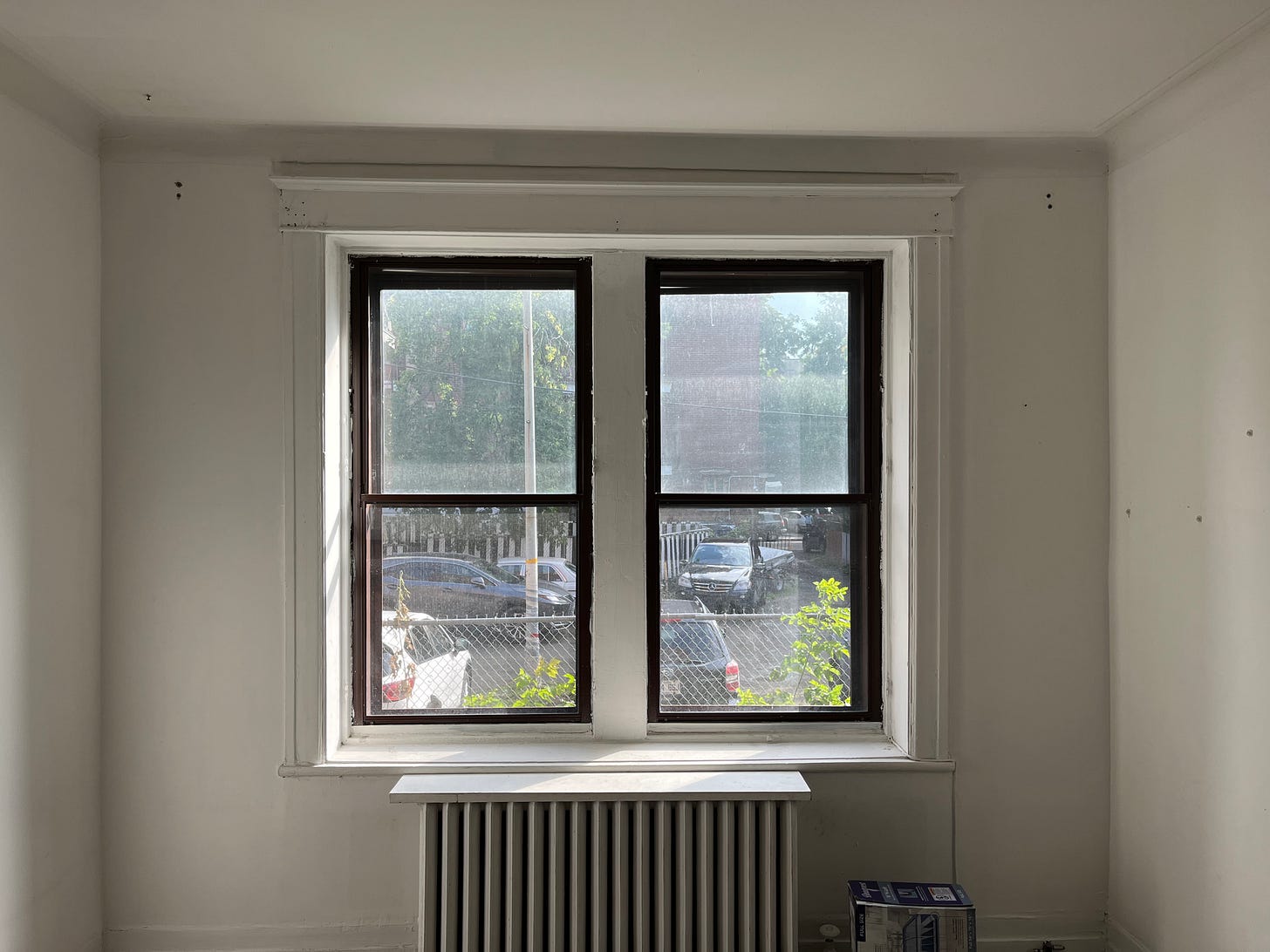
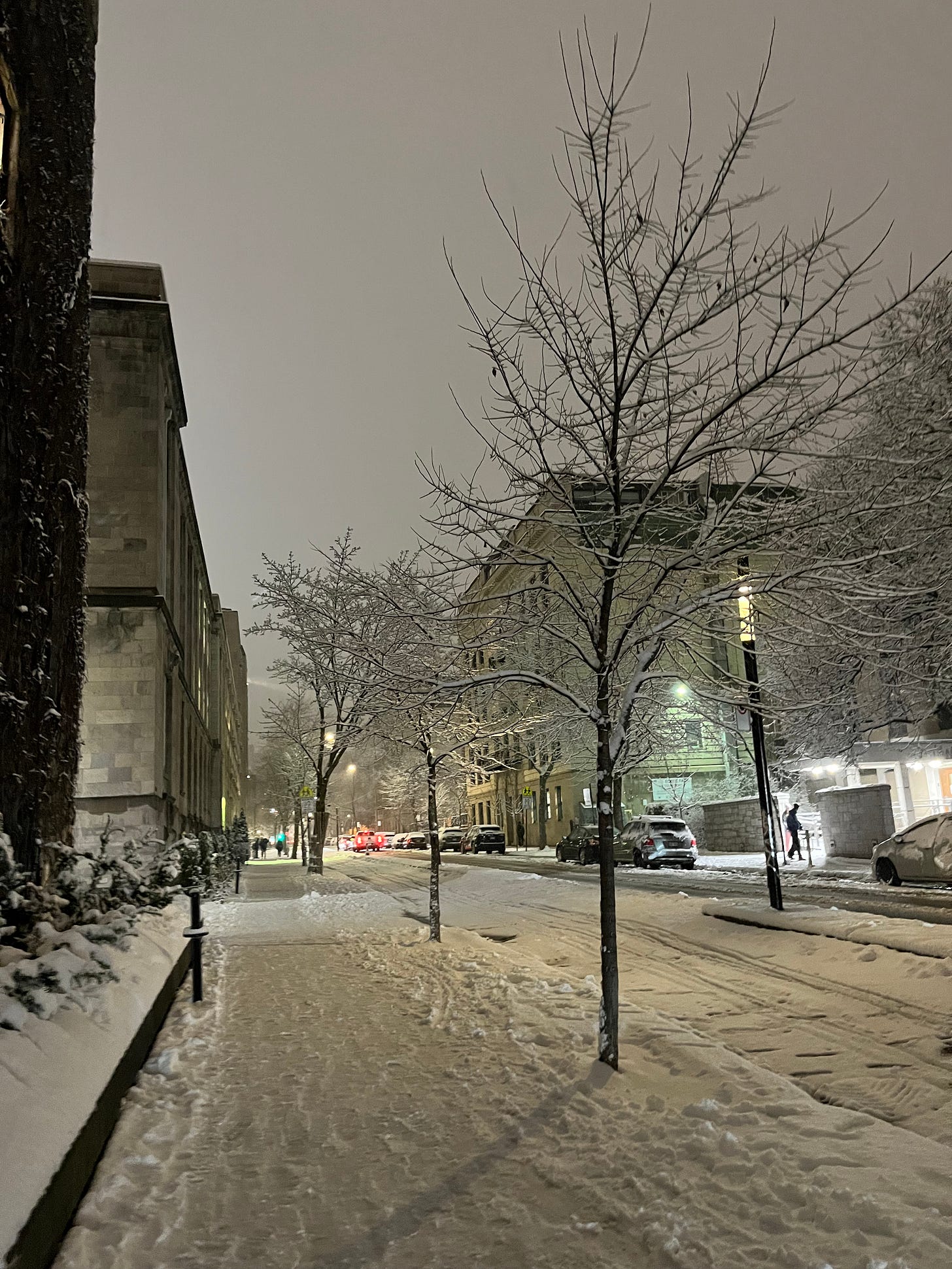
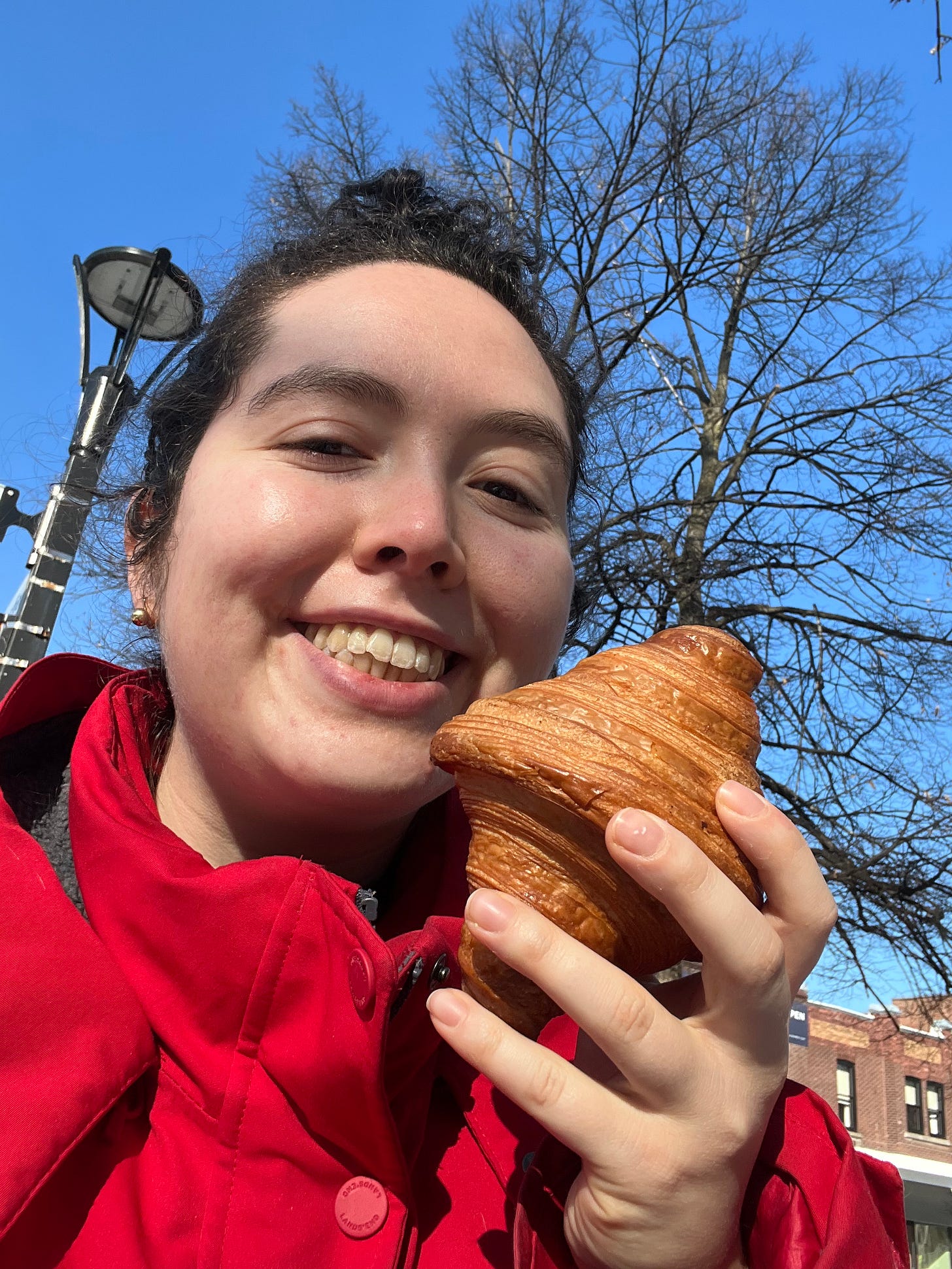
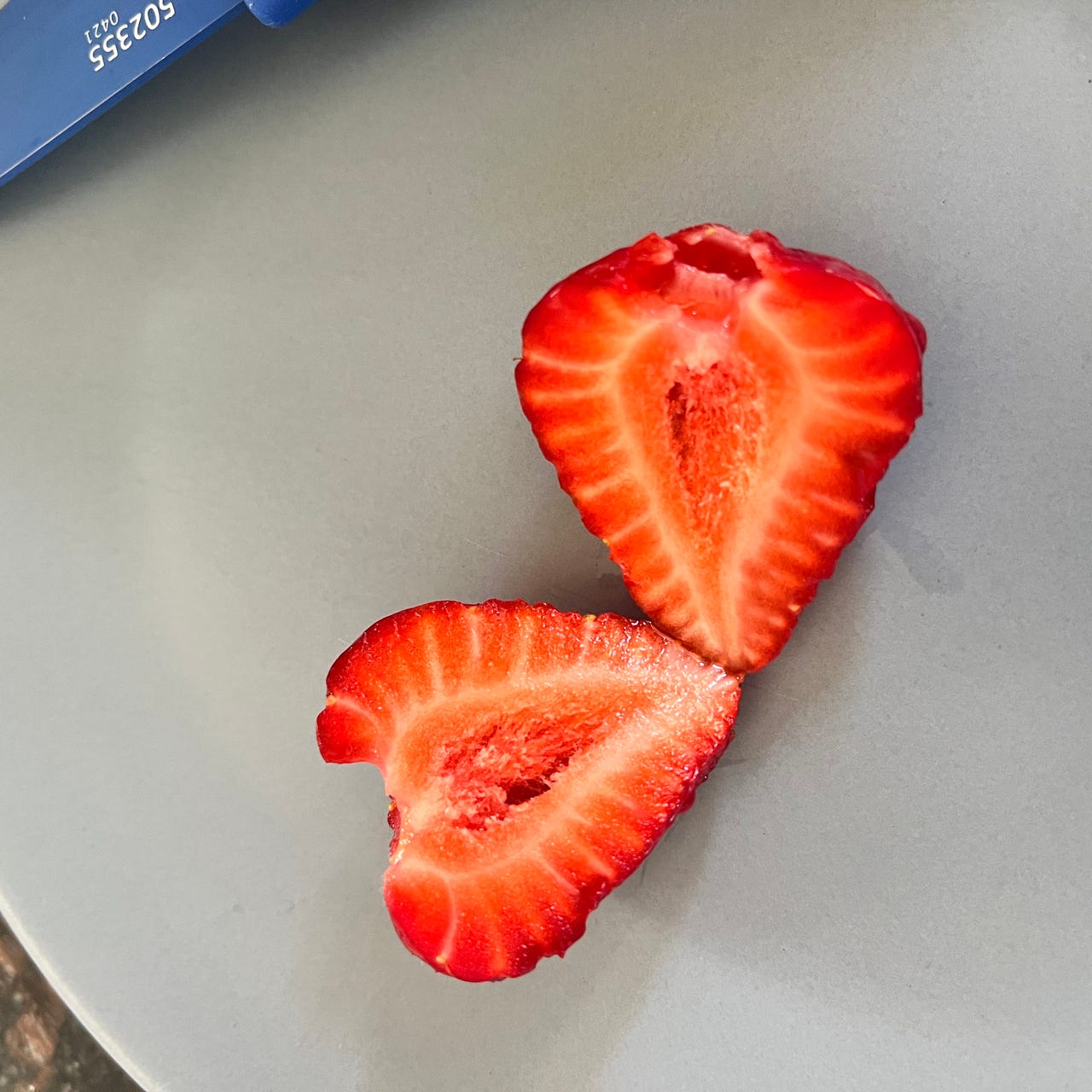
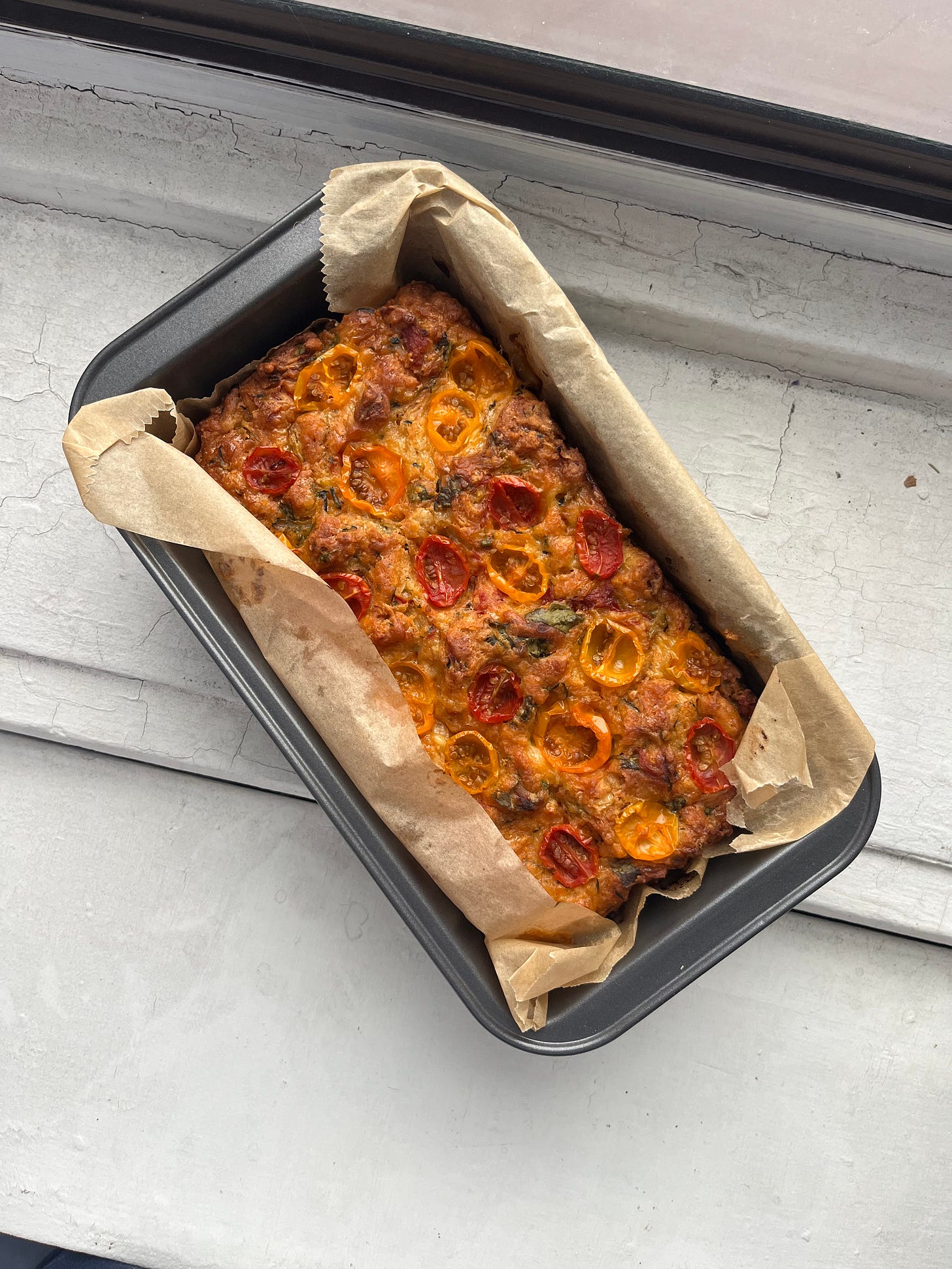
I loved this, as someone who also loved loved loved Montreal—I hope to make a home there one day, but also fear it is lost to me already!